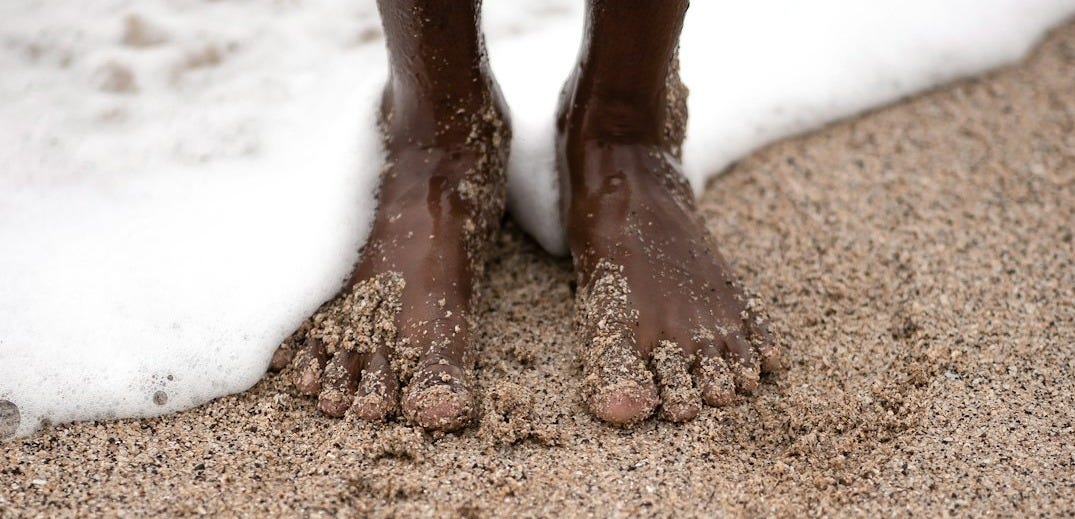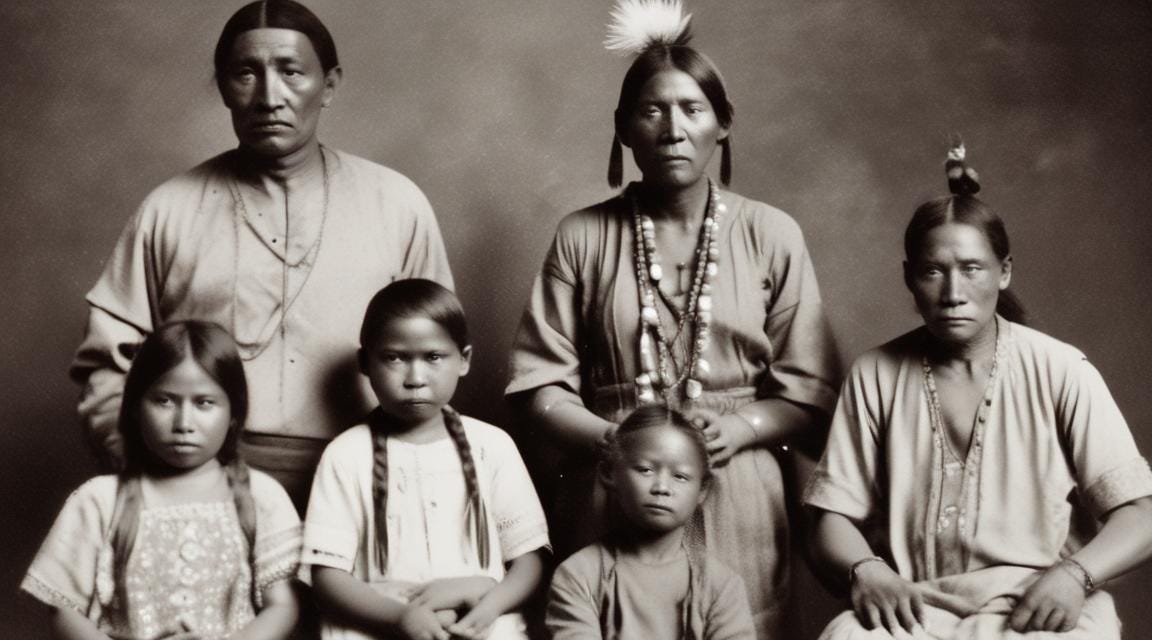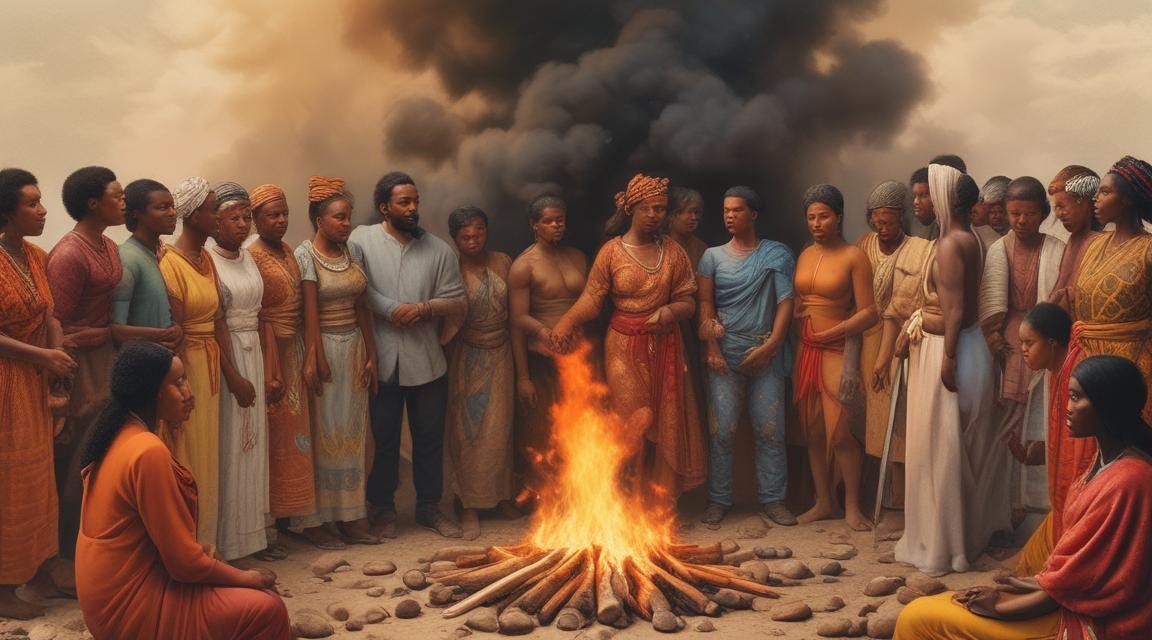
Have you ever wondered about the history of the land where you currently reside? What lives were lived here before yours? Who walked these paths, drank from the same rivers, and breathed the same air centuries before you? The land we inhabit holds memories far older than we can imagine—memories that echo through time, whispering stories of those who came before us.
A Silent Acknowledgment
A moment of silence to connect with these memories. A simple pause in your daily routine to acknowledge the peoples and lands you stand upon can be profoundly grounding. Starting your morning by stepping outside, feeling the warmth of the sun on your skin, and listening to the wind and the birds. In this quiet moment, you can honor the history of the land beneath your feet.
Such moments of reflection are not just acts of respect; they are vital in bridging the gap between the past and present. Many of us are far from our ancestral homelands, living on continents different from those of our ancestors. The modern world, with its relentless pace and consumer-driven culture, often disconnects us from our roots. This disconnection can leave us feeling lost, unsure of where we come from, and who we truely are.
The Disconnect from Ancestral Roots
In ancient societies, indigenous peoples had an intrinsic understanding of where they came from and how to live in harmony with their environment. They knew the land intimately—how to find medicinal plants, when and where to hunt, and how to read the weather through cloud shapes and patterns. This deep connection to the earth was not just practical; it was spiritual and cultural, woven into the very fabric of their identities.
However, as time passed and societies evolved, many of us lost this connection. The wisdom of our ancestors was gradually forgotten, replaced by the conveniences of modern life. Today, many of us do not know the songs, dances, traditional foods, or medicines of our ancestral lands. We’ve been taught that this knowledge is outdated, irrelevant in a world dominated by technology and social media.
Yet, this disconnection from our roots has left a void—a void that no amount of blue light scrolling can fill. It's a void that leads us to question our identities, to feel a sense of loss or longing for something we can’t quite put our soft modern finger on.
Reconnecting with the Land
Reconnecting with the land and its history is a way to begin filling that void. It can start with something as simple as stepping outside in the morning, grounding your feet on the earth, and taking a moment to breathe deeply. Feel the sun on your face, listen to the sounds of nature, and offer a silent prayer or an offering to a forest or body of water—a gesture of respect to those who lived here before you. This acknowledgment is like going to work every day, walking out of the house and into your car, seeing your neighbor, but choosing not to acknowledge them. Then one day, you decide to say hi, and your neighbor says "hi" back. It's the start of something new and beautiful. These small acts of acknowledgment can help you begin to build a relationship with the lands on which we now live.
Let your imagination wander: who lived on this land before you? What were their lives like? How did they survive and thrive in this environment? How did they raise their children, what foods did they eat, and what stories did they tell? This acknowledgment, even if only in your mind, can be a powerful way to honour the spirits of those who came before.
The old people are still here, watching over the land. By taking the time to acknowledge them, you open yourself up to their wisdom and guidance. This can be the first step in a journey of deeper connection to the place you now call home.
The Dark Delve Deeper into the Land's History
Cultivate a deeper connection with the land, and find inspiration to explore its history. Start by researching the names of local mountains, rivers, and other natural landmarks—these often carry profound cultural and historical significance. Reaching out to local Indigenous groups can provide insight into the languages, customs, and laws that shaped the land long before it became what it is today.
Understanding the history of the place you inhabit can offer a new perspective on your relationship with the land. But this is not about creating an illusion or of some kinda new age gathering where we simply hold hands, forget the past, and move forward like we are on the set of the final scene of Dances with Wolves. Instead, get down off your horse put your feet on the ground and understand that this work requires confronting the history of the land where you stand, acknowledging the potential destruction, murder, evil, torture, enslavement, and massacres that occurred there. Recognising these truths can evoke deep emotions, but it is essential.
Elders often say that we cannot "heal" ancestral trauma—it is locked away in the collective memory of humanity. However, we can "sweeten" our relationship with the ancestors and this trauma. Begin by making offerings, asking for forgiveness, and saying sorry. Consider what you can do to support local Indigenous culture, language, and sacred sites, ensuring they continue to thrive for future generations.
This process may also prompt you to reflect on your own heritage. Where do you come from? Who are your people, and what were their ways? These questions might lead you on a journey of self-discovery, uncovering aspects of your identity that you have not yet explored. Remember, your story, like any story involves victims, massacre, enslavement, torture, and evil. The colour of your skin does not exempt you from trauma—we are all in this together.
The Importance of Acknowledgment
Acknowledging the history of the land you live on is not just about honouring the past; it's about creating a more meaningful and intentional relationship with the present. When you take the time to connect with the land, you become more aware of your place in the world. You begin to see yourself as part of a larger ecosystem, a web of life that includes not just the natural world but the human stories that have unfolded over millennia.
This awareness can inspire you to live more mindfully, with greater respect for the earth and all its inhabitants. It can also lead to a deeper understanding of yourself and your own roots, helping you to navigate the complexities of modern life with a stronger sense of identity and purpose.
A Path Forward
In a world that often feels disconnected and fragmented, reconnecting with the land and its history can be a powerful act of healing. It’s a way to relate with the wisdom of the past, and to bring balance and harmony in your life and your relationship with that land, or any land that you visit. By taking the time to honour the memory of where you live, you not only pay tribute to those who came before you, but you also lay the foundation for a more connected and meaningful future.
The next time you step outside, take a moment to pause and reflect. Feel the earth beneath your feet, breathe in the air, and listen to the whispers of the past. This small act of acknowledgment is the first step in a journey of reconnection—a journey that begins with you.





